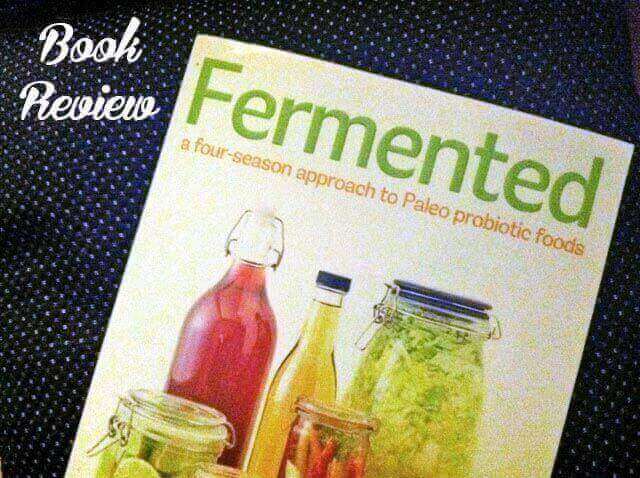I must admit, one of my favorite things about being a blogger is that I get a chance to read and review some great books. I’ve got a stack of about ten that I’m finishing and will post on soon, and my most recent read, “Fermented” has been great!
Fermented
Written by Jill Ciciarelli, Fermented: a four season approach to Paleo probiotic foods, is a fascinating read (and it is beautifully photographed as well).
When I first started switching my family to real foods, fermented foods were the ones that scared me. Meats, veggies and healthy fats were easy enough, but the idea of purposefully culturing live bacteria was a big hurdle to get over.
While Nourishing Traditions has a lot of great recipes for fermented foods, as a beginner, I was overwhelmed with the mere idea of fermented foods and the complexity of some of the recipes.
These days, my counter is practically a science lab, with at least three different types of ferments in different places at any given time, but I wish I’d had the book Fermented when I was first starting out (and I am enjoying it now too).
Fermented delves in to the history of fermented foods and why we need them. It then goes through a simple introduction of needed equipment and ingredients and then provides various fermentation recipes (starting with simple ones).
Fermented starts with the basic fermented drinks and veggies and goes all the way toward traditional fermented meats like salami. Just following the recipes in order would take a person from a novice fermenter with little or no experience to a veteran with a lot of fun along the way.
If you’re asking “Why on earth would a person want to ferment food in the first place?” I’m glad you asked…
From a previous post:
“Why Eat Fermented Foods? Besides the fact that they taste great and really grow on you, there are several great reasons to start making and eating fermented foods:
- Probiotics– Eating fermented foods and drinking fermented drinks like Kefir and Kombucha will introduce beneficial bacteria into your digestive system and help the balance of bacteria in your digestive system. Probiotics have also been shown to help slow or reverse some diseases, improve bowel health, aid digestion, and improve immunity!
- Absorb Food Better– Having the proper balance of gut bacteria and enough digestive enzymes helps you absorb more of the nutrients in the foods you eat. Pair this with your healthy real food diet, and you will absorb many more nutrients from the foods you eat. You won’t need as many supplements and vitamins, and you’ll be absorbing more of the live nutrients in your foods.
- Budget Friendly– Incorporating healthy foods into your diet can get expensive, but not so with fermented foods. You can make your own whey at home for a couple of dollars, and using that and sea salt, ferment many foods very inexpensively. Drinks like Water Kefir and Kombucha can be made at home also and cost only pennies per serving. Adding these things to your diet can also cut down on the number of supplements you need, helping the budget further.
- Preserves Food Easily– Homemade salsa only lasts a few days in the fridge- Fermented homemade salsa lasts months! The same goes for sauerkraut, pickles, beets and other garden foods. Lacto-fermentation allows you to store these foods for longer periods of time without losing the nutrients like you would with traditional canning.”
Some Recipes:
Here are some of my favorite recipes (that are currently creating probiotics on my counter right now)… for more, check out the recipes in Fermented.
- Naturally Fermented Ginger Ale
- Homemade Root Beer
- Sauerkraut
- Kombucha (with “soda” option) – can also continuous brew
- Probiotic Lemonade
- Water Kefir “Soda”
- Beet Kvass
- Fermented Salsa
- Ginger Bug Soda Starter
Do you ferment anything? What is your favorite? Tell me below!




Leave a Reply